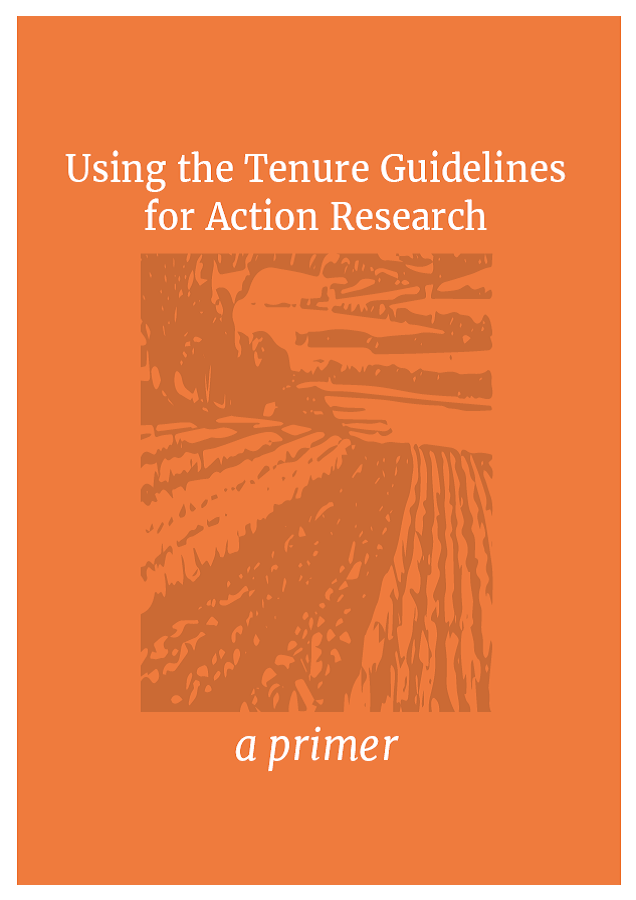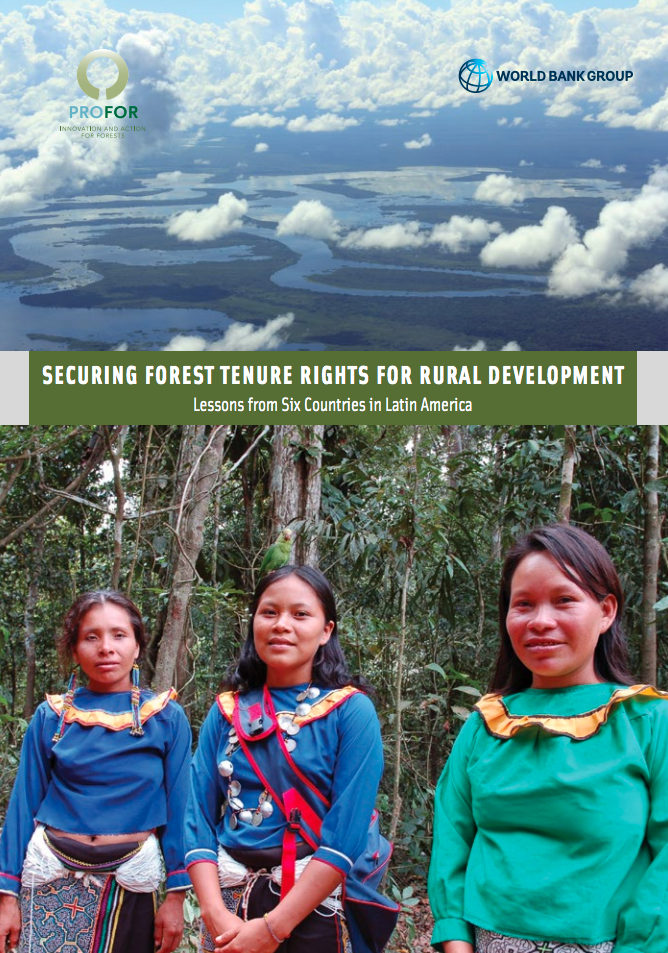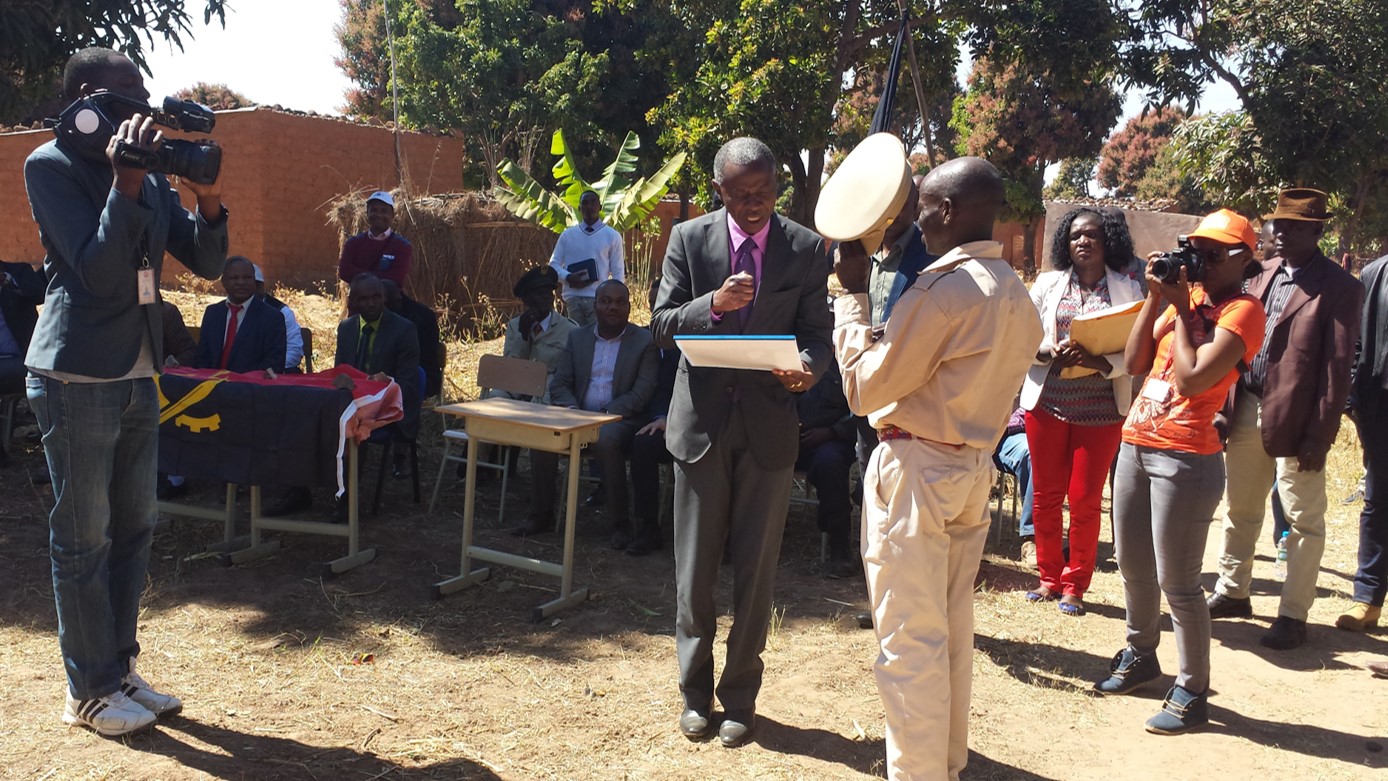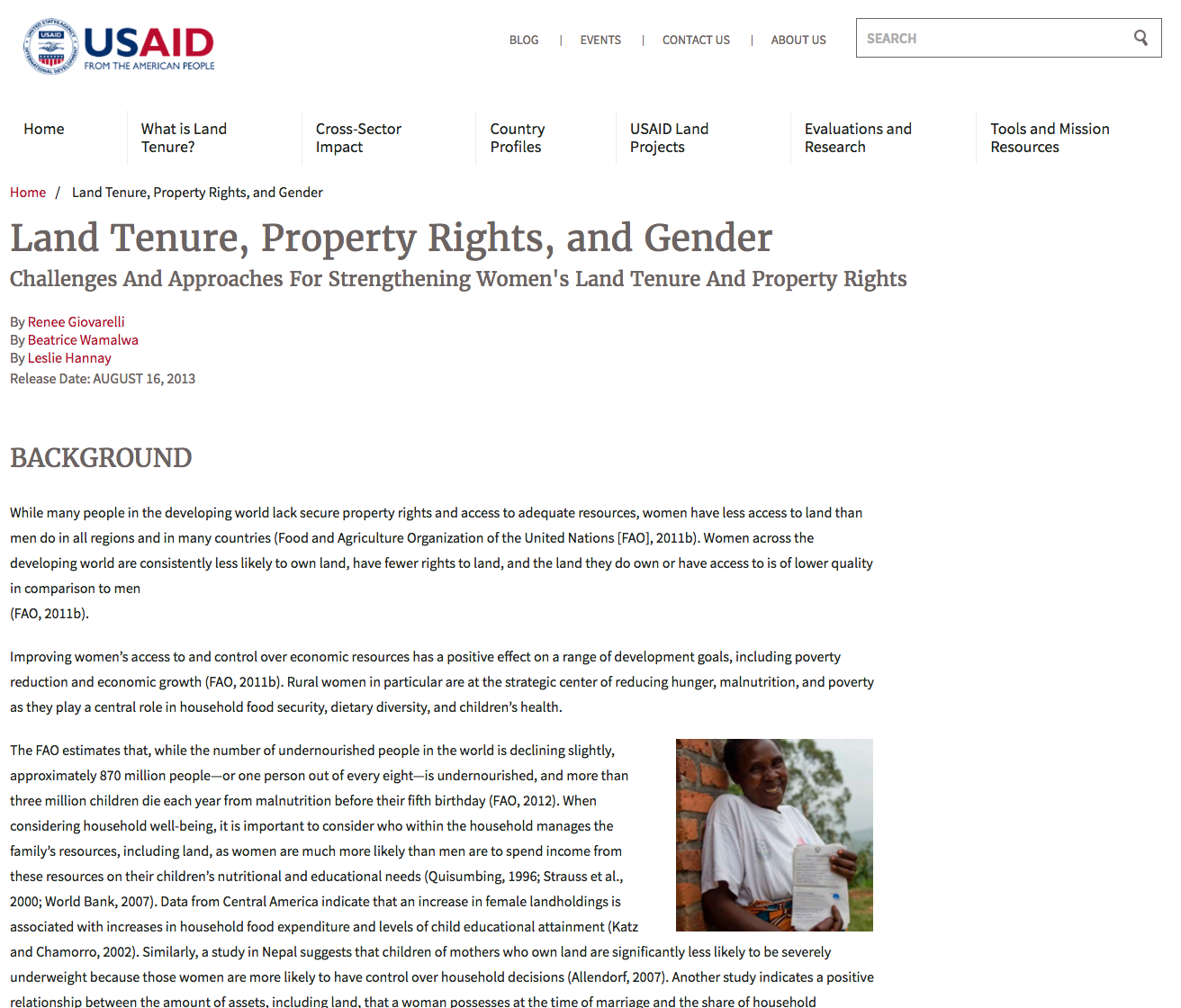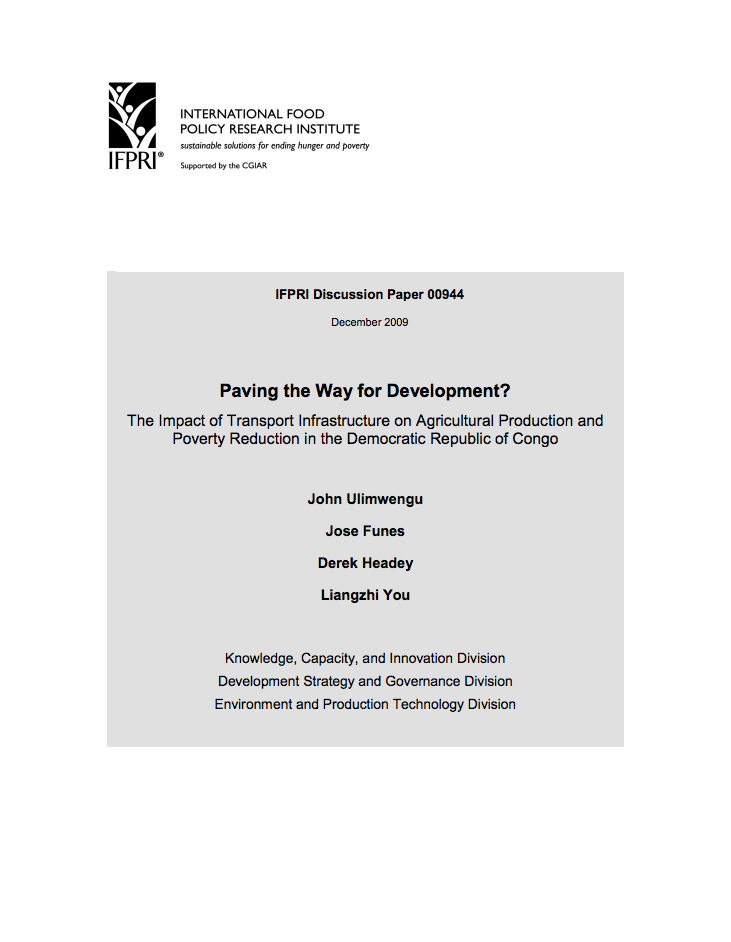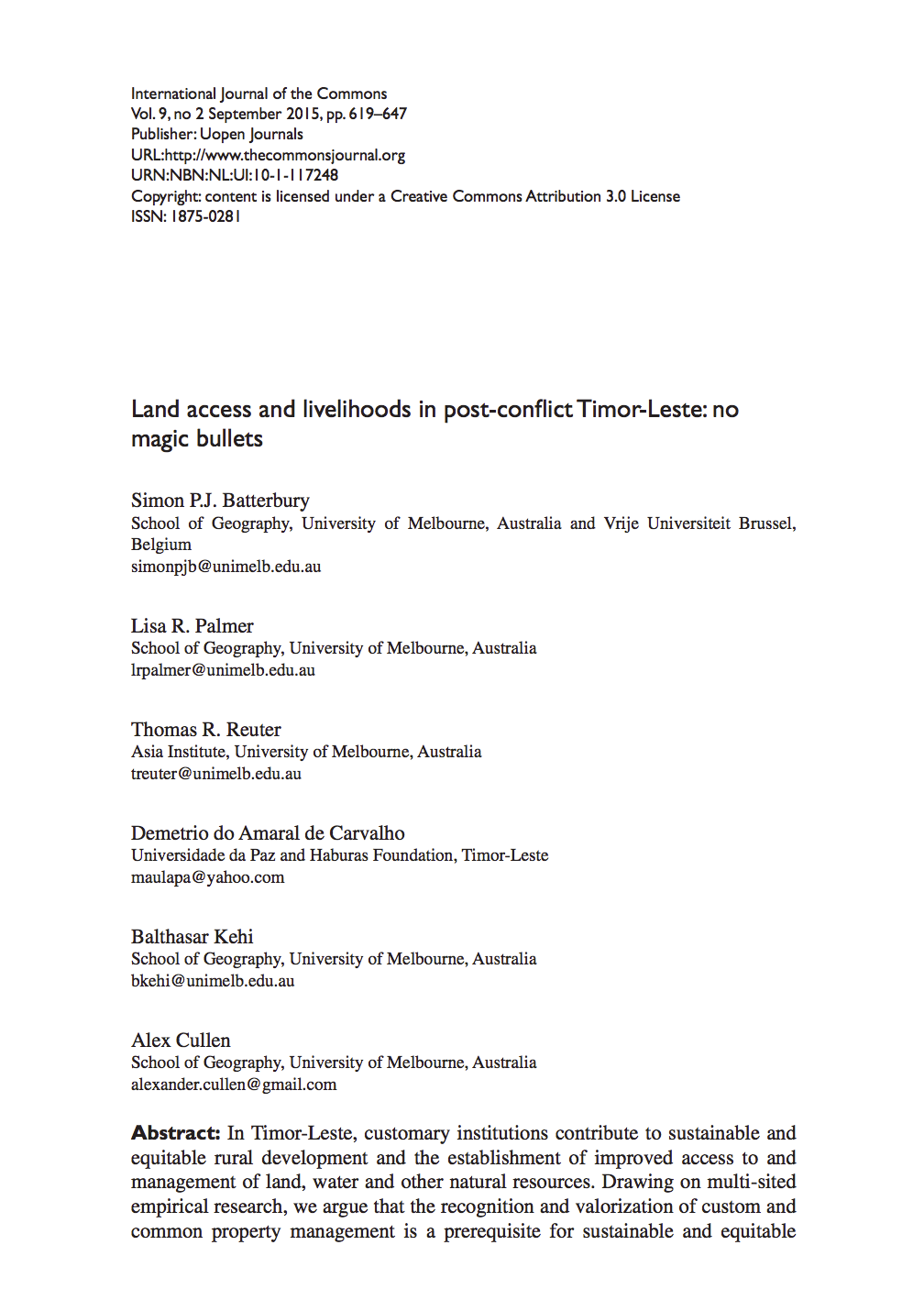International and local approaches to rural development
The review examines evolving ideas and approaches to rural development internationally from the 1950's to 2000s. It examines how the history of rural development in South Africa is embedded in the larger narrative of colonial land dispossession and the implementation of apartheid policies of separate development. It examines the various policy iniatives post 1994 relating to land reform, agriculture and rural development.

